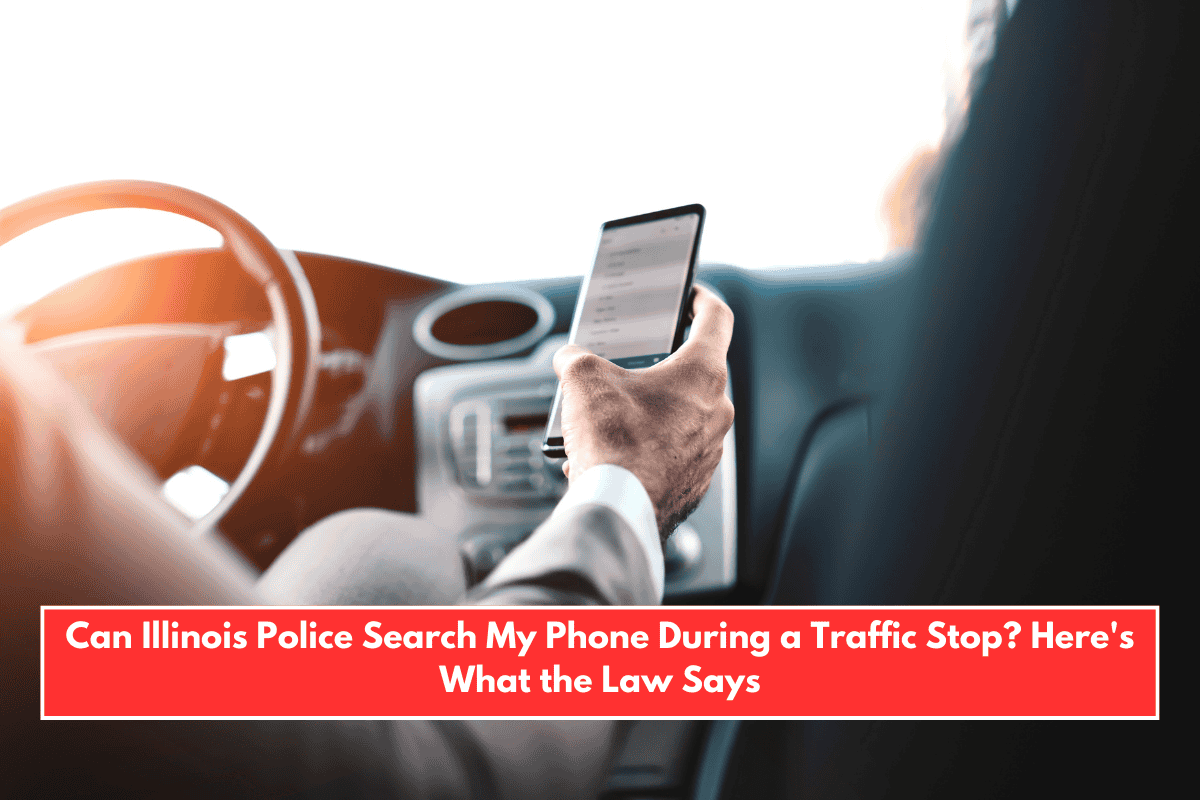Understanding your rights during a traffic stop in Illinois is essential, especially when it comes to the privacy of your cell phone. Here’s what the law says about when, if ever, police can search your phone during a routine traffic stop.
Cell Phones and the Fourth Amendment
The Fourth Amendment to the U.S. Constitution protects against unreasonable searches and seizures. This protection extends to digital data on your cell phone, which courts recognize as highly personal and private.
Supreme Court Precedent: Riley v. California
The landmark U.S. Supreme Court decision in Riley v. California (2014) established a clear rule: police may not search the data on your cell phone without a warrant, even if you are arrested1. The Court recognized that cell phones are fundamentally different from other items you might carry, such as wallets or purses, because they contain vast amounts of personal information. As a result, a warrantless search of your phone’s contents is unconstitutional unless a specific exception applies.
“Riley is straightforward: no warrant, no evidence. Accordingly, prosecutors should be informing law enforcement that it needs to ask for consent to search the data on cell phones or, if it has probable cause to believe a crime has been committed, seek a warrant.”
Illinois Law and Traffic Stops
In Illinois, police generally cannot search your vehicle or personal belongings, including your phone, without probable cause or your consent. During a routine traffic stop, an officer may:
- Ask for your driver’s license, registration, and proof of insurance.
- Ask for consent to search your vehicle or belongings, including your phone.
You have the right to refuse consent to any search, including your phone. Politely saying, “I do not consent to any searches,” is sufficient. If you refuse, the officer cannot search your phone unless they have probable cause and obtain a warrant, or unless a specific legal exception applies.
Exceptions to the Warrant Requirement
There are limited circumstances where police may search without a warrant:
- Consent: If you give explicit permission, police can search your phone.
- Probable Cause & Exigent Circumstances: If police have probable cause to believe your phone contains evidence of a crime and there are exigent circumstances (such as an imminent threat of evidence destruction), they may be able to search without a warrant. However, the Supreme Court has made clear that such situations are rare and the default rule is that a warrant is required.
- Plain View: If contraband or evidence is in plain view (for example, an illegal item visible on your phone’s screen), police may seize it, but accessing data still generally requires a warrant.
Hands-Free Law Violations
If you are stopped for violating Illinois’ hands-free law (using your phone while driving), the officer can cite you for the infraction. However, this does not give them the right to search your phone’s contents without your consent or a warrant. Courts have rejected the idea that checking your phone for recent activity is akin to checking your license or registration, emphasizing the privacy interests at stake.
What Should You Do if Asked to Hand Over Your Phone?
- You are not legally required to give an officer your phone or unlock it during a traffic stop unless they have a warrant or you consent.
- You can politely refuse: “Officer, I do not consent to a search of my phone.”
- If police search your phone without a warrant or your consent, do not resist physically. State your objection clearly and seek legal counsel as soon as possible.
Police Search of Your Phone During a Traffic Stop
| Situation | Can Police Search Your Phone? |
|---|---|
| Routine traffic stop, no consent | No, not without a warrant |
| You give explicit consent | Yes |
| Probable cause + exigent circumstances | Rarely, but possible |
| Arrest for a crime (not just citation) | Still need a warrant for data |
| Violation of hands-free law | No, not without a warrant |
In Illinois, police cannot search your phone during a traffic stop unless you give consent or they have a warrant. The law is clear: your phone’s data is protected by the Fourth Amendment, and warrantless searches are almost always unlawful. If you are asked to hand over your phone, you have the right to refuse, and you should clearly state your lack of consent. If your rights are violated, contact an experienced attorney for assistance.
Sources:
- https://www.isba.org/ibj/2014/09/ussupremecourtsaysnocell-phonesea
- https://www.cosleylaw.com/news/when-can-police-search-your-vehicle
- https://hirschlawgroup.com/understanding-your-rights-during-a-police-stop-in-illinois/
- https://bowtielaw.com/2009/11/11/dont-text-drivebut-can-the-police-search-your-cell-phone-at-the-traffic-stop/
- https://www.oflaherty-law.com/learn-about-law/passenger-rights-during-a-traffic-stop-in-illinois-do-passengers-in-a-traffic-stop-need-to-show-id















